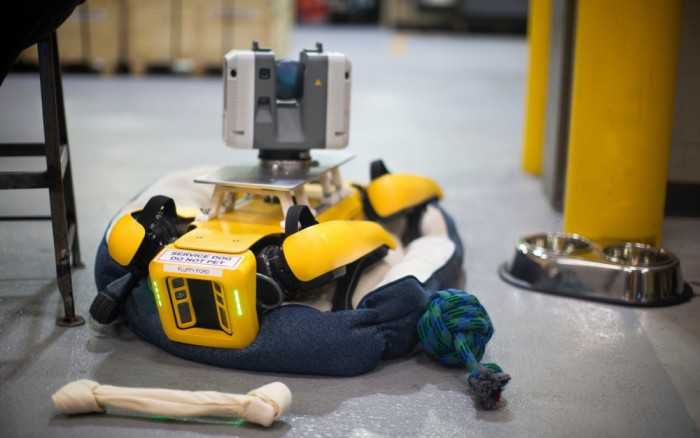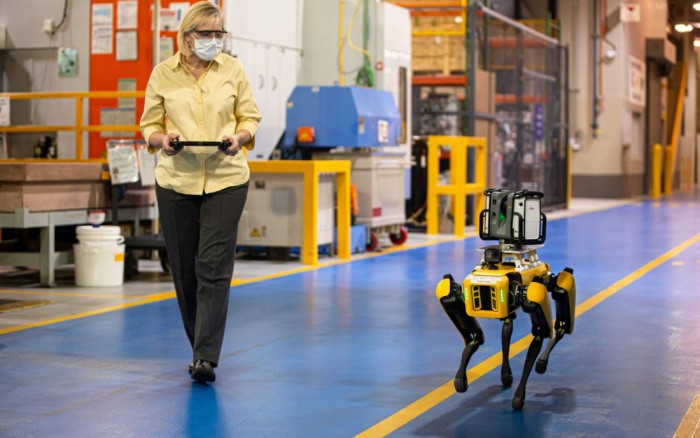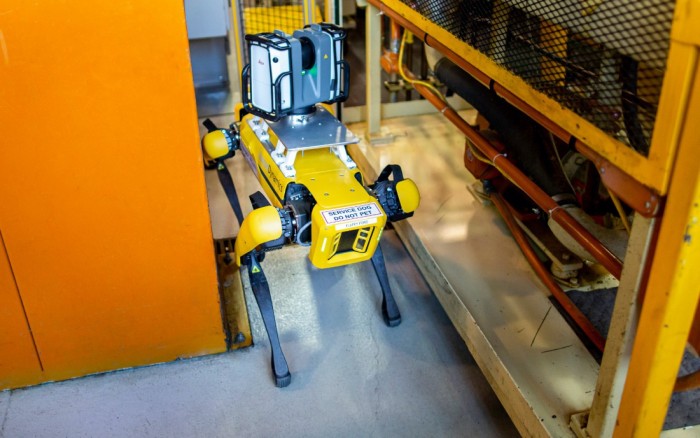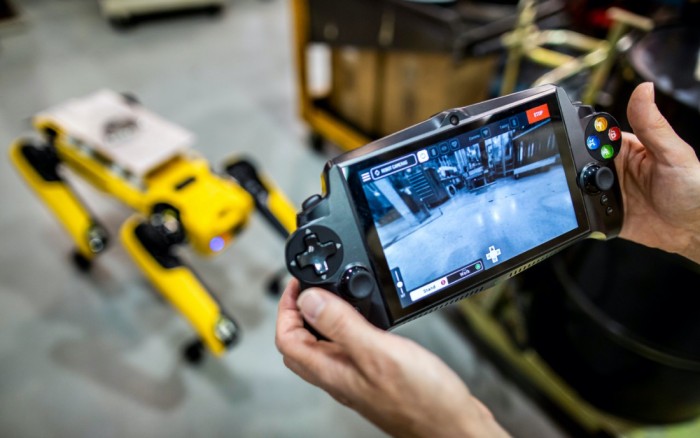Fan Cheng Ford sent two Boston powered robot dogs to work in the factory
Published on:2020-07-28
It is reported that Ford used two Boston power robot dogs named spot and fluffy at its Van Dyke transmission plant. Boston Dynamics recently expanded its leasing program to provide Ford with two of these quadruped robots, which aim to digitally scan the factory in 3D, which is faster and cheaper than the old method.

Obviously, Ford is no stranger to robotics and the employees on the companys production line are no stranger. However, two Boston Dynamics products, different from the robots that usually use fixed arms to help make cars, are making full use of their degrees of freedom to walk around the factory workshop. Ford often readjusts its factories and produces new digital models because of production needs. Ford usually sends a human team with tripods and laser scanners to collect data for new 3D models. This usually takes about two weeks per plant and costs nearly $300000.
However, spot and fluffy have built-in laser scanners in their series of sensors, including five cameras, and can make routes and task lists in advance. Operator Paula weibelhaus loads work for them from the tablet, and then can remotely check what the robot sees through the camera.
Each robots battery can last about two hours, but Ford also has a way to save batteries by using transporters to move robots from one workplace to another. During the movement, the transport vehicle has its own 3D sensor, which can also be used to collect data. For human workers, space will be limited in narrow places, and robot dogs are easier to pass through.

Each robot dog can walk, lie on the ground, or switch to the speed specially used to deal with stairs. They can also squat or stretch up to investigate remote places. In addition, they are programmed to keep a safe distance from human employees to avoid potential injuries.


The result of using robot dog is that the survey is faster and can be completed in about half the time. Now, the carmaker hopes to have remote programming support so that employees across the country can load factory tasks into robot dogs and release them from a distance.
Boston Dynamics launched its early user program in September 2019, with about 150 robotic dogs deployed in places ranging from NASAs Jet Propulsion Laboratory to Cirque du Soleil. Now it has expanded its scope. The robot dog can be sold for $75000 or provided to customers according to the lease plan.

Obviously, Ford is no stranger to robotics and the employees on the companys production line are no stranger. However, two Boston Dynamics products, different from the robots that usually use fixed arms to help make cars, are making full use of their degrees of freedom to walk around the factory workshop. Ford often readjusts its factories and produces new digital models because of production needs. Ford usually sends a human team with tripods and laser scanners to collect data for new 3D models. This usually takes about two weeks per plant and costs nearly $300000.
However, spot and fluffy have built-in laser scanners in their series of sensors, including five cameras, and can make routes and task lists in advance. Operator Paula weibelhaus loads work for them from the tablet, and then can remotely check what the robot sees through the camera.
Each robots battery can last about two hours, but Ford also has a way to save batteries by using transporters to move robots from one workplace to another. During the movement, the transport vehicle has its own 3D sensor, which can also be used to collect data. For human workers, space will be limited in narrow places, and robot dogs are easier to pass through.

Each robot dog can walk, lie on the ground, or switch to the speed specially used to deal with stairs. They can also squat or stretch up to investigate remote places. In addition, they are programmed to keep a safe distance from human employees to avoid potential injuries.


The result of using robot dog is that the survey is faster and can be completed in about half the time. Now, the carmaker hopes to have remote programming support so that employees across the country can load factory tasks into robot dogs and release them from a distance.
Boston Dynamics launched its early user program in September 2019, with about 150 robotic dogs deployed in places ranging from NASAs Jet Propulsion Laboratory to Cirque du Soleil. Now it has expanded its scope. The robot dog can be sold for $75000 or provided to customers according to the lease plan.

